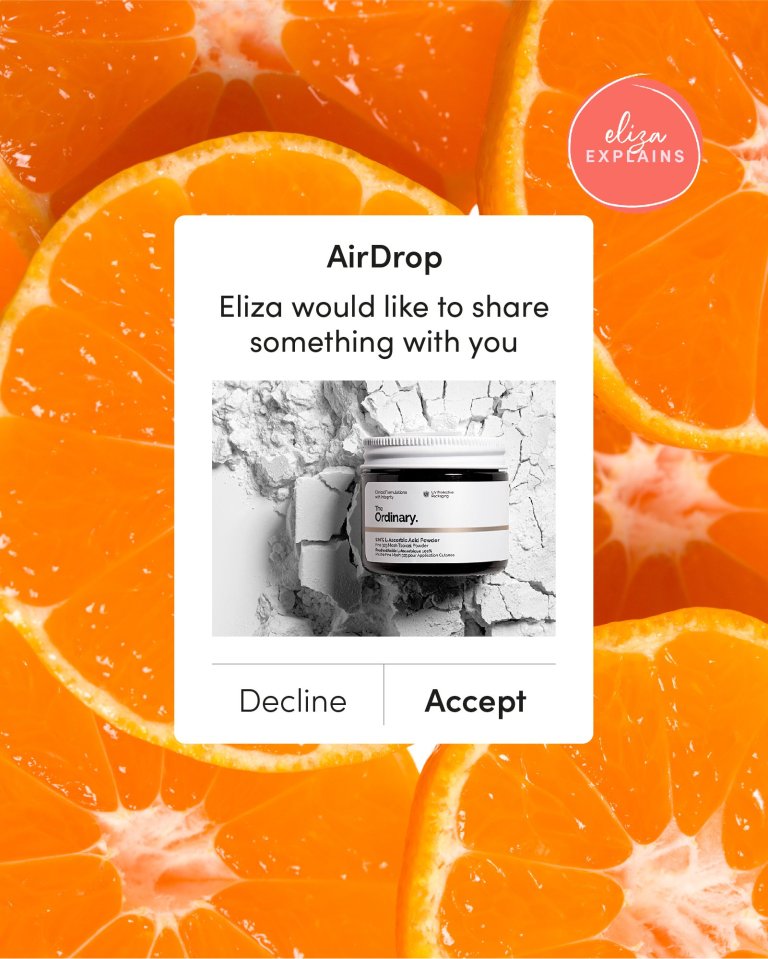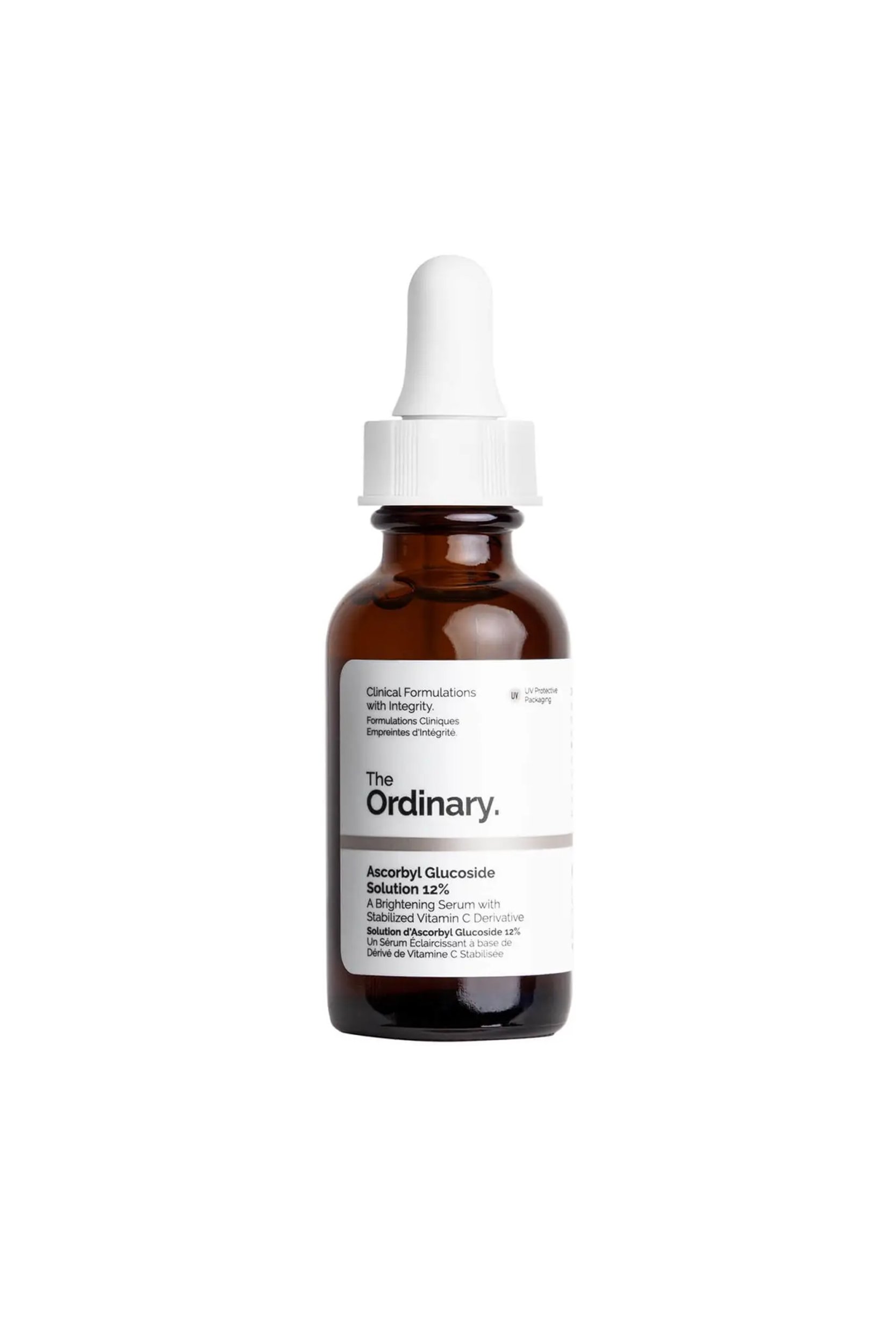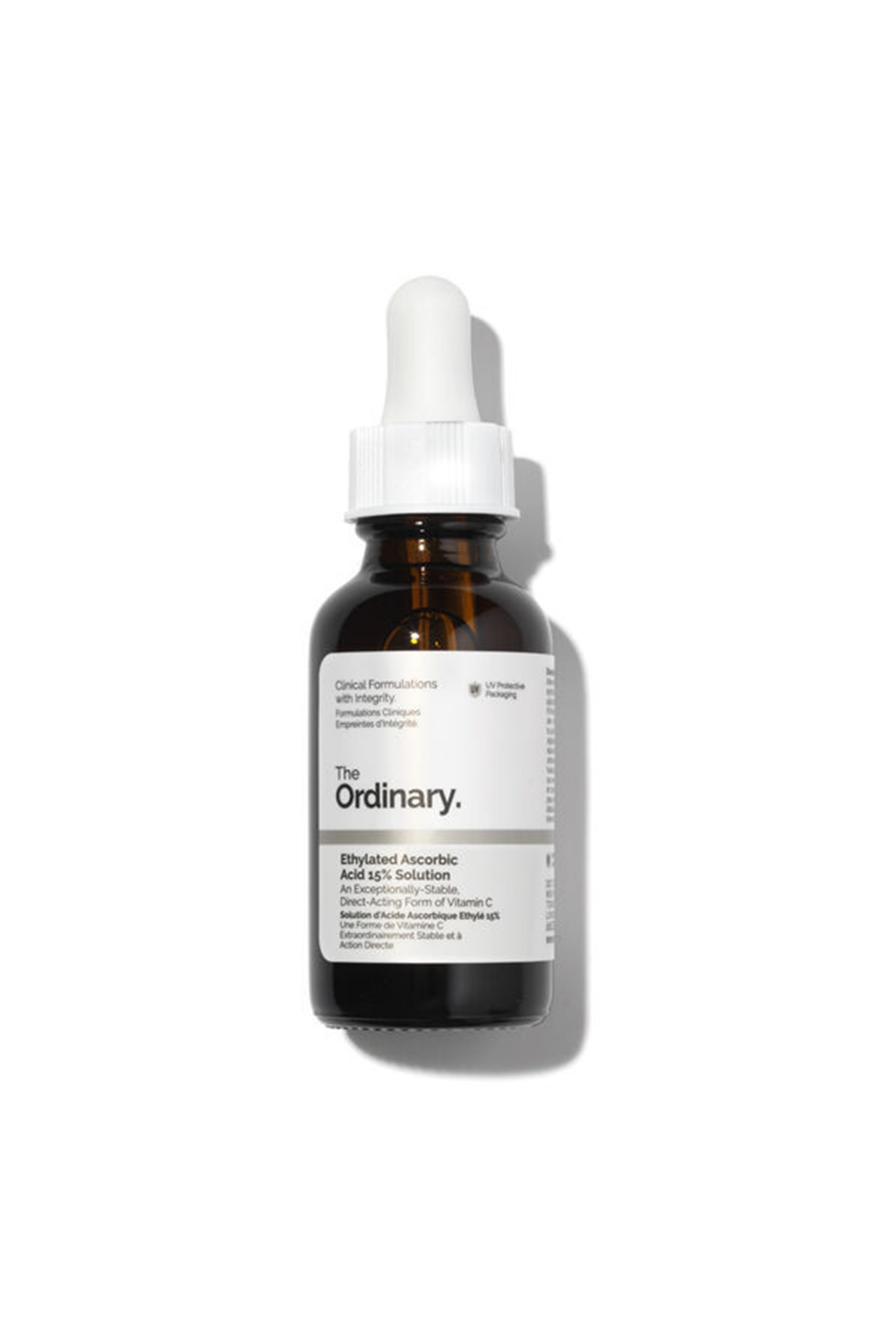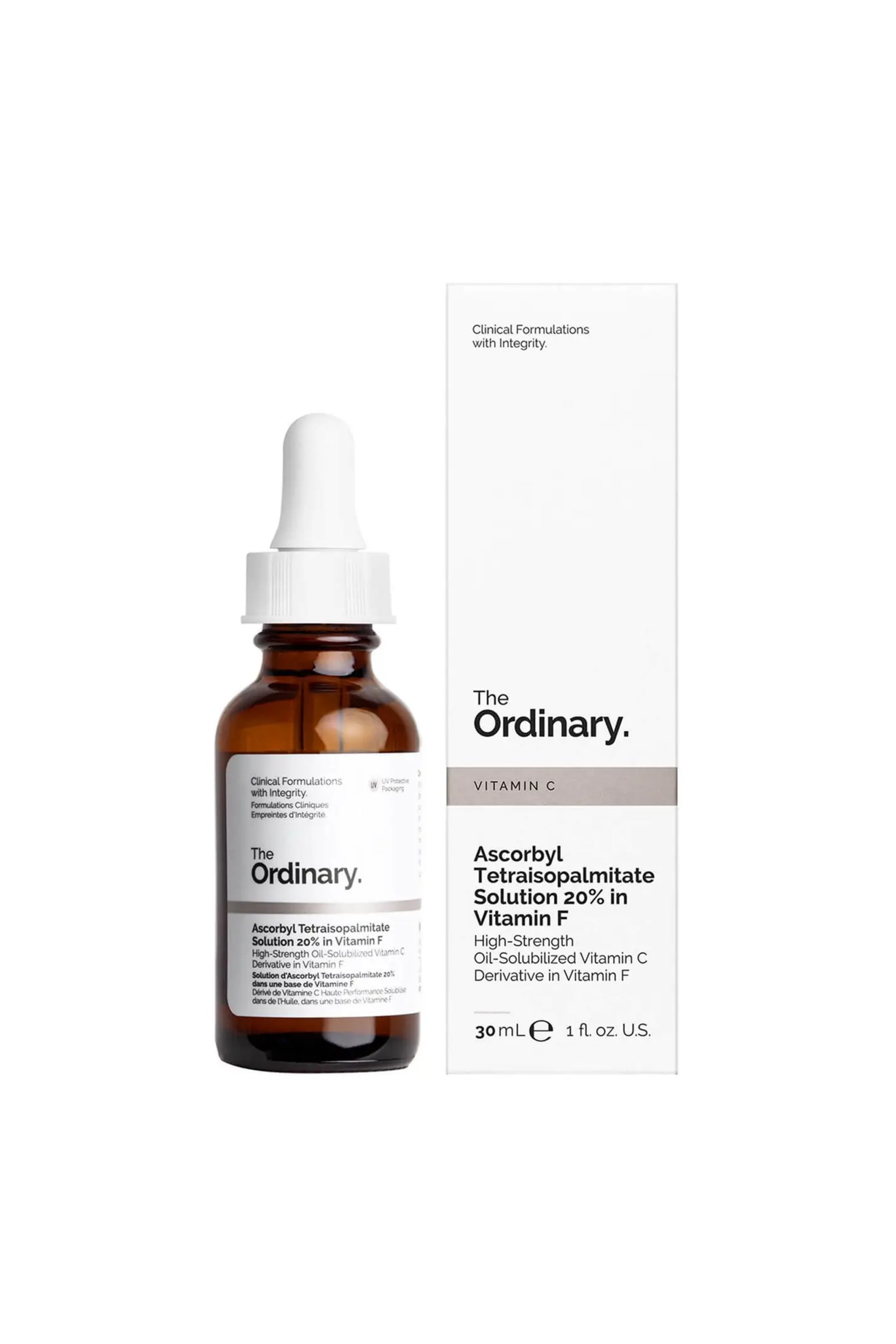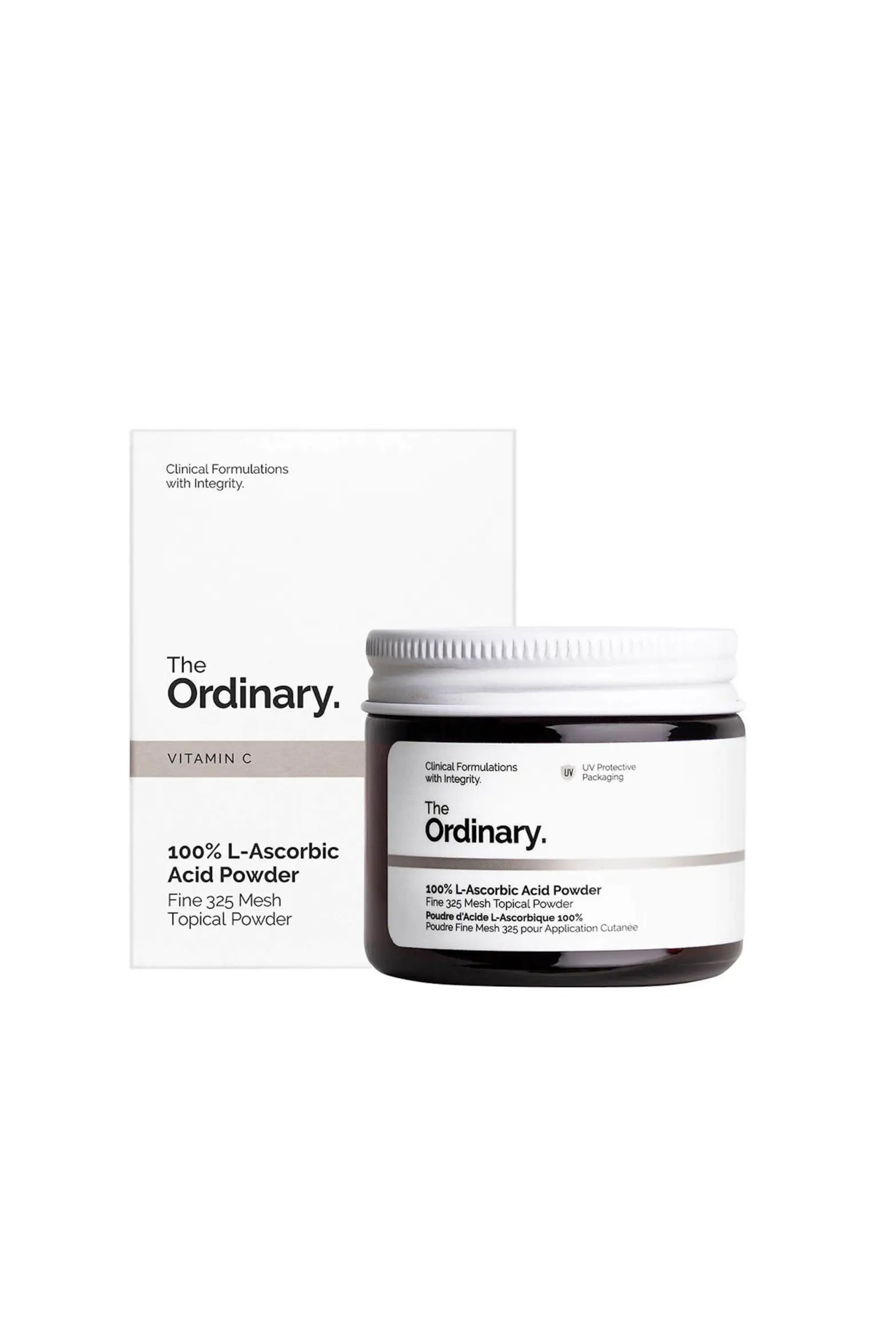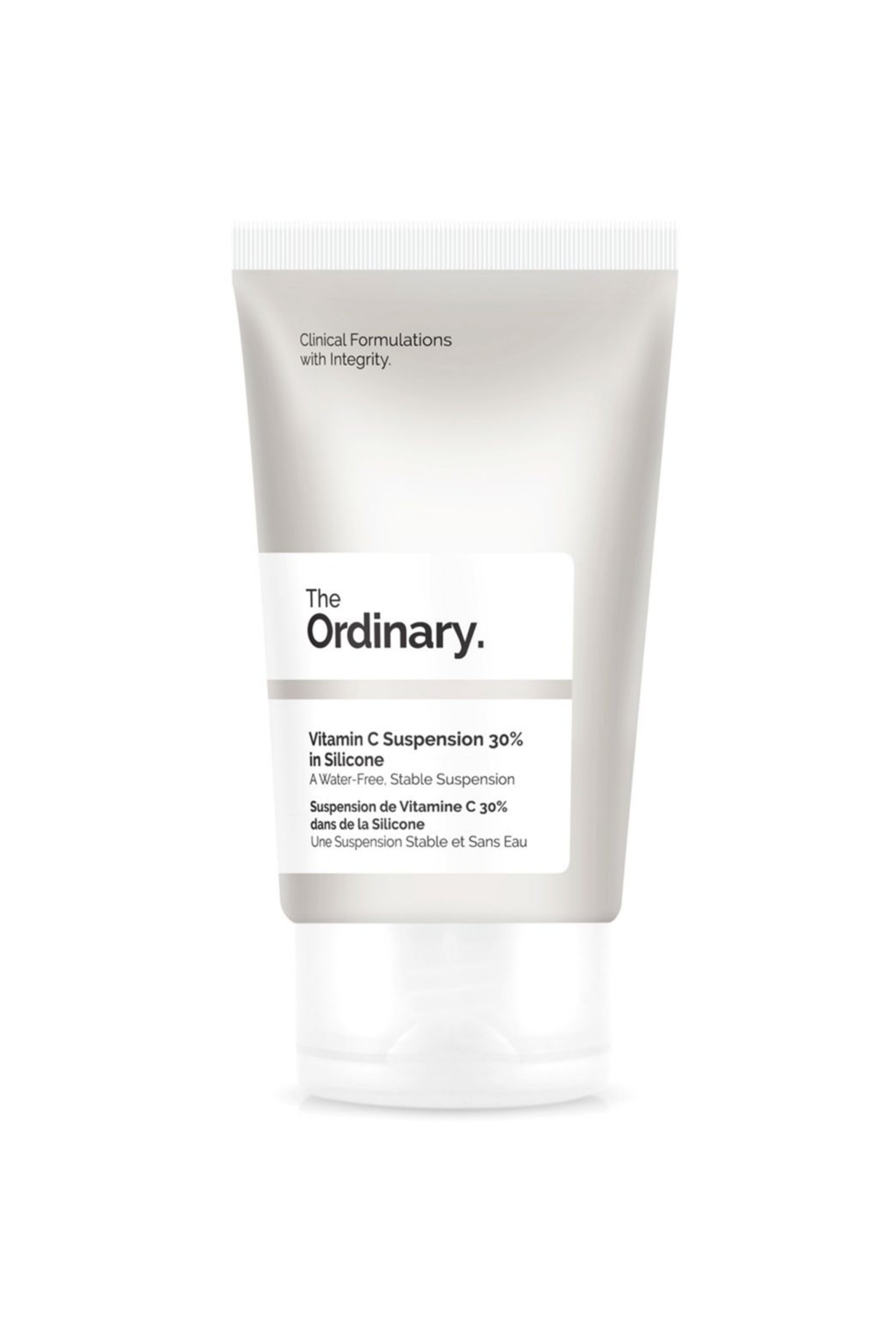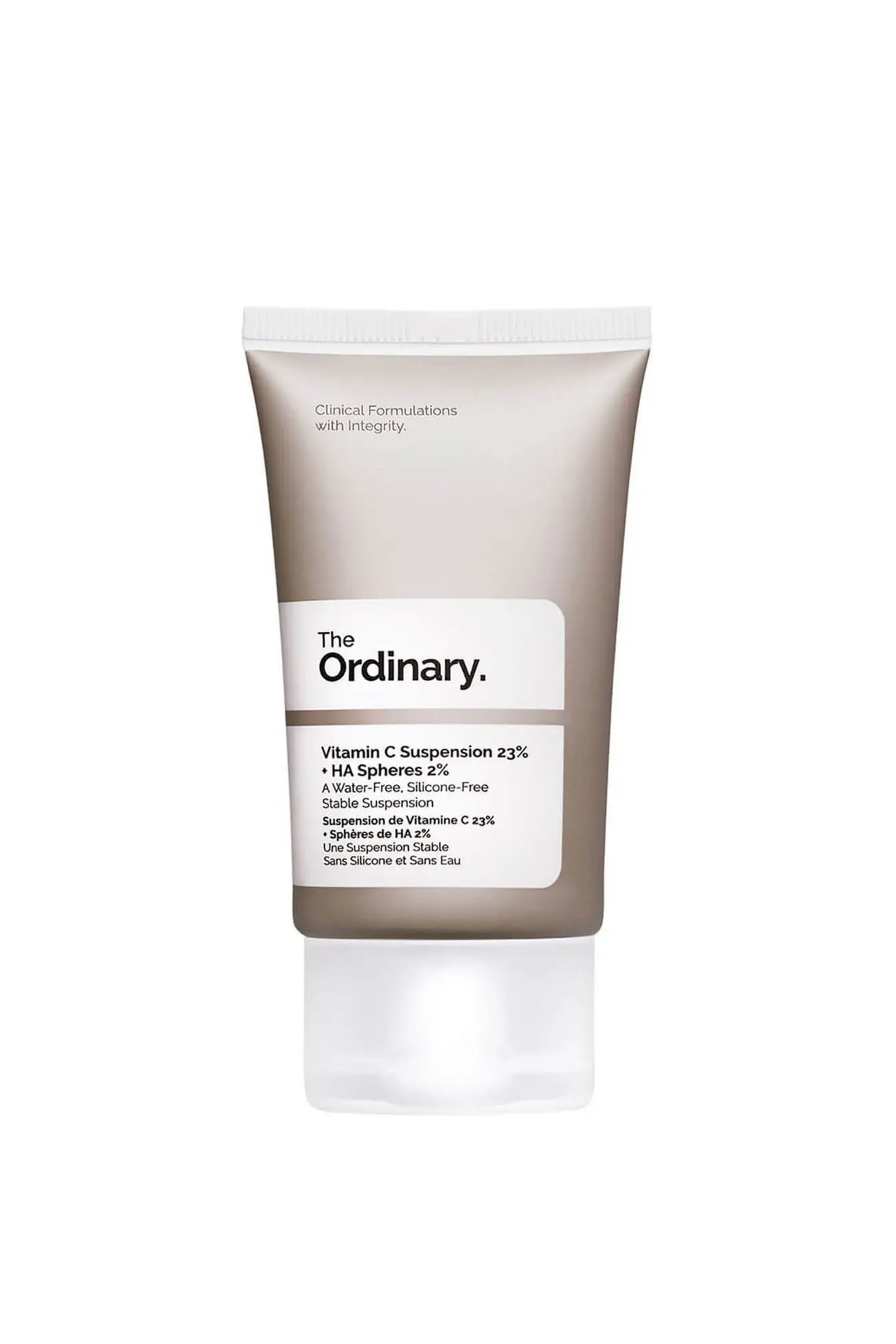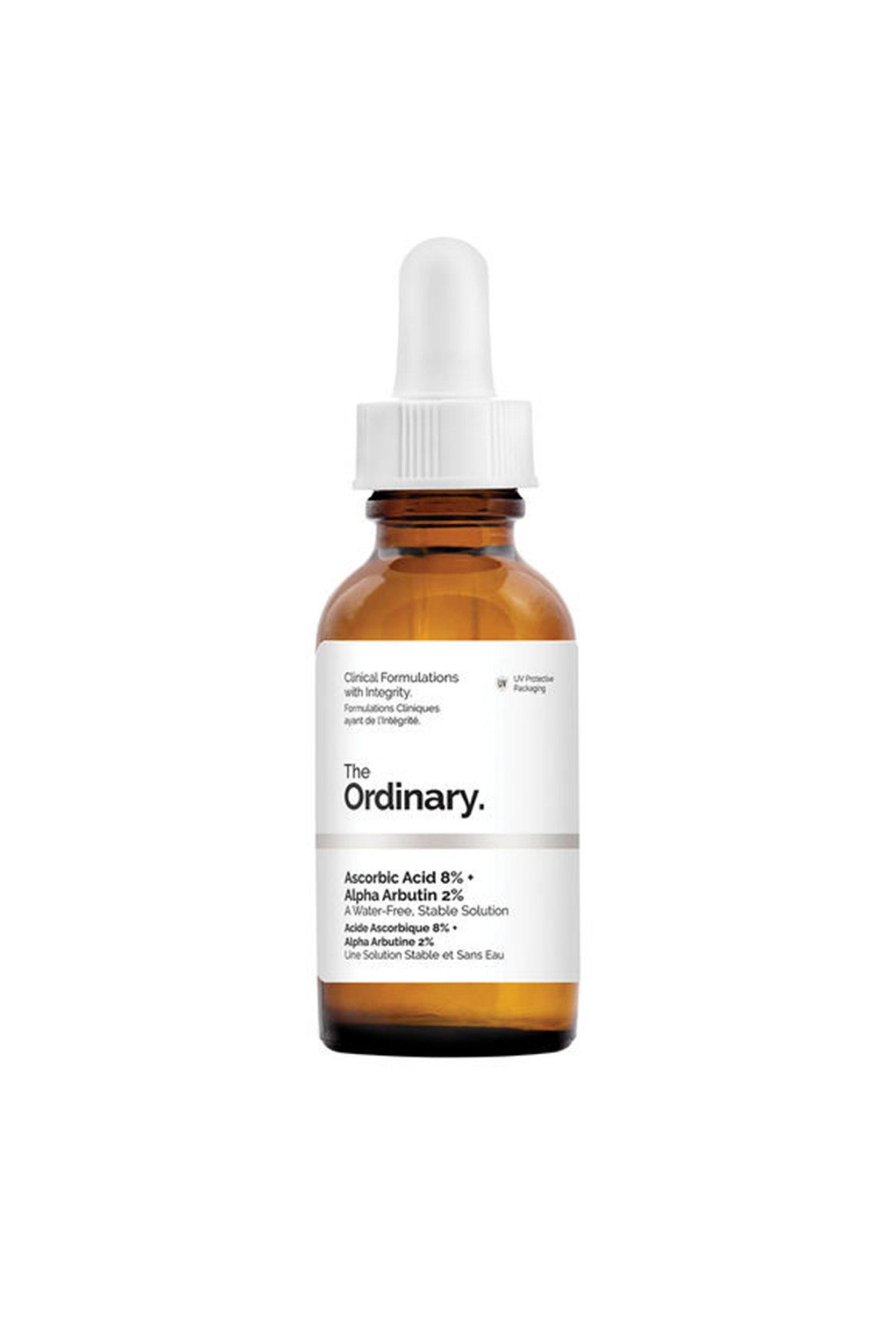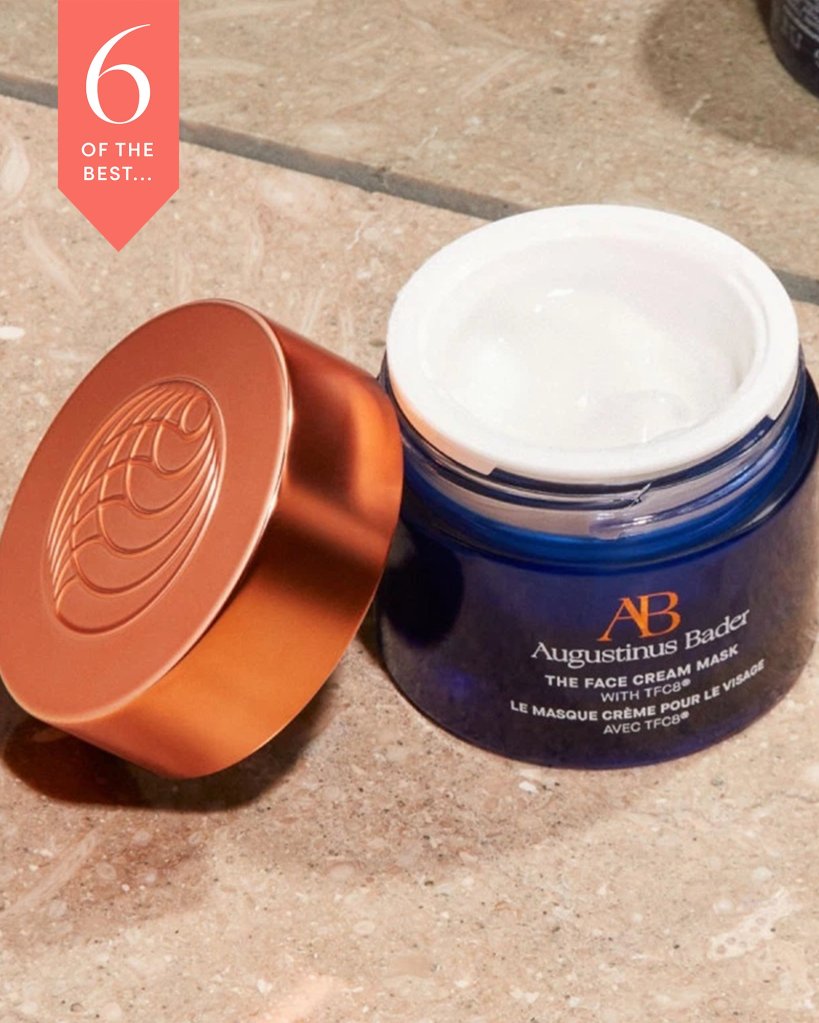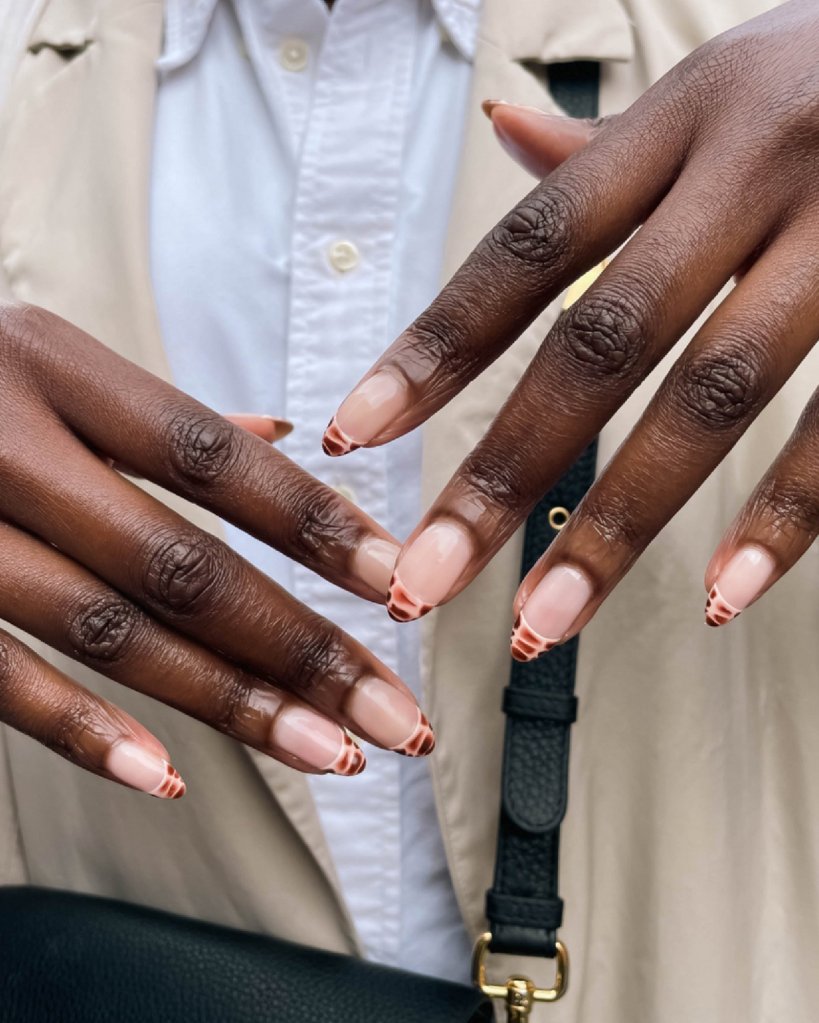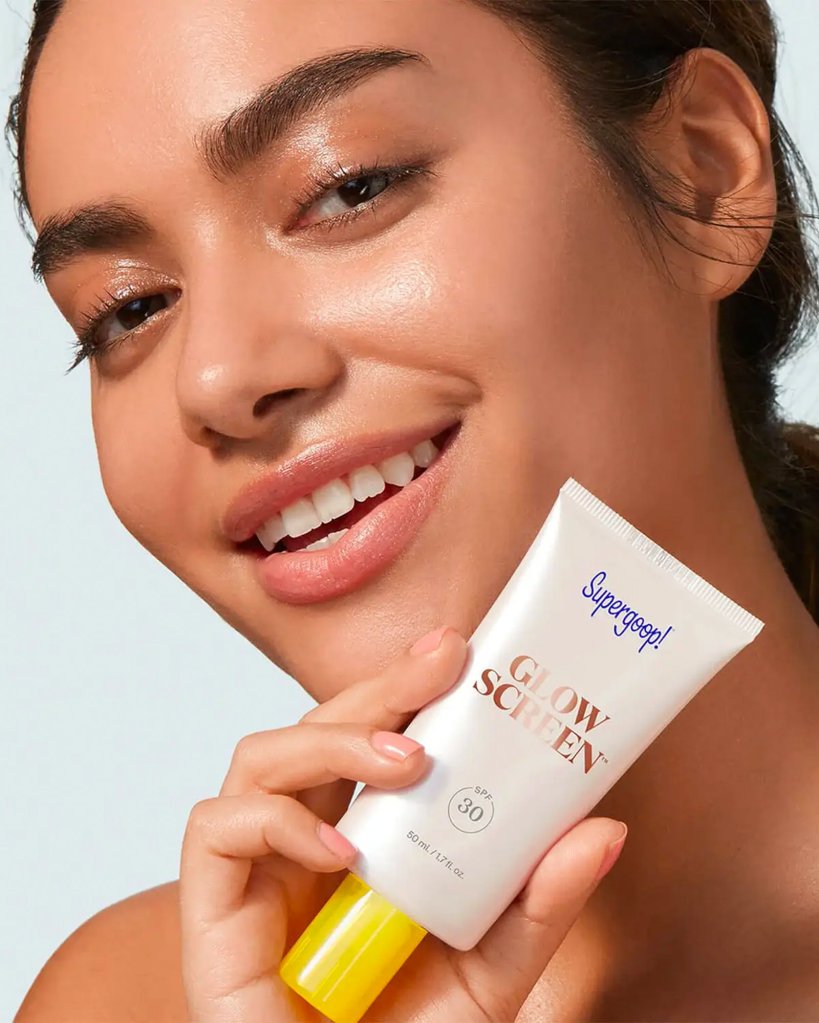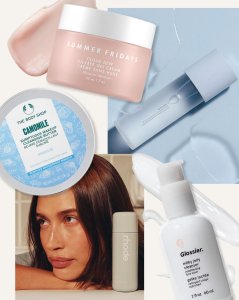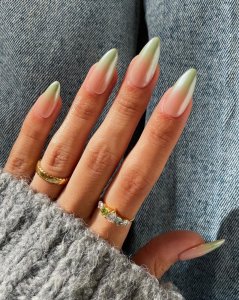Demystifying ingredients, clarifying how to apply products and revealing everything you’ve always wanted to know about skin types; Eliza Explains will help you become a beauty pro.
Vitamin C is often described as a gold star skincare ingredient. With myriad benefits from brightening skin tone to aiding collagen production to help give you plump, youthful looking skin, it’s the one skincare ingredient I use every single day to help boost my glowing skin.
Skincare brand The Ordinary is well known for producing single ingredient skincare at affordable prices that do the job well. Its vitamin C category is extensive, with seven products using the skin brightening stuff as its star ingredient.
But how do you know which is the right vitamin C product for you? Well, I’ve put together a handy guide – so whether you’re a vitamin C newbie or just looking to up your game, you can decide which is right for you based on the formula, the benefits and how user-friendly it is.
What is vitamin C?
In science speak, vitamin C is a water-soluble compound that’s known as L-Ascorbic or Ascorbic Acid. The Ordinary uses these names for some of its vitamin C products.
In skincare terms, vitamin C is an antioxidant that helps to repair the signs of damage from environmental aggressors and free radicals such as pollution, sun damage and the ageing process.
The benefits of vitamin C in skincare
The Deciem Lab Team, who make The Ordinary products, particularly recommend incorporating vitamin C into your skincare routine if you’re “looking to target uneven skin tone and dull skin.” Other benefits include minimising fine lines and wrinkles, brightening, supporting collagen and elastin production, and targeting hyperpigmentation and dark spots. Impressive stuff.
Using The Ordinary vitamin C products: an overview
The Ordinary vitamin C products can be divided into two camps: those with pure vitamin C and those that use vitamin C derivatives. The difference is that a higher, or pure, concentration of vitamin C can cause irritation.
While this is likely to be a tingling sensation, some skin types may find it uncomfortable enough to stop using it. The brand recommends that if you’re new to vitamin C, or if you cannot tolerate high amounts of it, then start with a vitamin C derivative or a lower concentration of L-Ascorbic Acid.
Vitamin C Derivatives
Ascorbyl Glucoside Solution 12%, £11
Ascorbyl Glucoside is a great introduction to the ingredient. An alternative to pure L-Ascorbic Acid, Ascorbyl Glucoside is a water-soluble derivative of Vitamin C that is much more stable. The result is a lovely serum that feels super comfortable on the skin.
Best for: Entry level vitamin C users, skin that can’t tolerate pure vitamin C, and oily skin (the serum is lightweight and non-oily).
Targets: Uneven skin tone, dullness, fine lines, and wrinkles.
How to use: This can be applied in the morning and evening, but since it is a water-based Vitamin C serum, it should be applied before any other oils or creams.
Ethylated Ascorbic Acid 15% Solution, £18
Another alternative to pure vitamin C to achieve radiant, healthy-looking skin is this stable water and oil-free formula. It’s close to the molecular weight of pure Vitamin C, so mimics the results of the harder stuff.
Best for: Anyone who wants quick results with minimal stinging.
Targets: Dullness, signs of ageing and uneven skin tone.
How to use: Warm 2-3 drops in your hands before massaging into your face. Apply after any water-based products but before oils and creams. Use morning and evening.
Ascorbyl Tetraisopalmitate Solution 20% in Vitamin F, £15.20
An oil-soluble derivative of vitamin C that can be used in high concentrations with minimal risk of irritation. The oil-like formula includes Vitamin F, which is high in fatty acids, helping to support a healthy skin barrier and further brighten the skin.
Best for: Those with dry skin or sensitivity to pure L-Ascorbic Acid.
Targets: Uneven skin tone, dullness, fine lines and wrinkles, dehydrated skin.
How to use: Apply a few drops to the entire face morning and night.
Pure Vitamin C
100% L-Ascorbic Acid Powder, £5
This potent powder delivers a high concentration of vitamin C to the skin. Crucially, it needs to be mixed with another solution such as a serum, toner, moisturiser or face mask before being applied, to help keep the vitamin C fresh and stable.
The results are fast and effective, but this is super strong stuff so a word to the wise: you’ll need to build up your tolerance. Expect to experience a strong tingling sensation for the first few weeks of use.
Best for: Experienced vitamin C users and those who want bespoke vitamin C application.
Targets: Uneven skin tone, signs of ageing, external aggressors, and free radical damage.
How to use: Use in the evening and, depending on your tolerance, mix a quarter to half a scoop of powder with 5-10 drops of a hydrating serum or emulsion-based product. I usually mix this with whatever hyaluronic acid I’m using for an extra hit of hydration.
Avoid using with: Niacinamide, The Ordinary’s EUK 134 0.1%, peptides, direct acids or retinoids. Also avoid mixing with strong actives, including those with more vitamin C.
Vitamin C Suspension 30% in Silicone, £6.40
Another water-free stable vitamin C option, this serum-like formula contains 30% pure L-Ascorbic Acid which is, drum roll please, suspended in silicones. Why? Well, this helps make it feel smooth and velvety on the skin. The addition of pure L-Ascorbic Acid means that you may experience a strong tingling sensation for a few weeks, so you’ve got to build up that tolerance.
Best for: Anyone who loves the smooth feeling of silicone-based products, or anybody used to a high concentration of pure vitamin C.
Targets: Uneven skin tone, signs of ageing, external aggressors, and free radical damage.
How to use: Apply a small amount and massage into the face; the brand recommends using this in the evening. If the tingling sensation is too strong, you can also dilute this by mixing it with your favourite serum or moisturiser.
Vitamin C Suspension 23% + HA Spheres 2%, £6
A water-free, silicone-free formulation, this provides the most direct exposure of topical vitamin C to the skin. It’s supported by the addition of dehydrated spheres of hyaluronic acid, so you get the brightening benefits of Vitamin C, plus the hydrating and plumping effects of HA.
The most unusual of the vitamin C bunch, this doesn’t feel like any other skincare product I’ve tried. It’s a kind of gritty powder that you massage in until absorbed. The vitamin C level is pretty high, so a tingling sensation may be experienced until your skin gets used to it.
Best for: Those looking for silicone-free formulas who still want a high concentration of pure vitamin C, as well as experienced users of vitamin C.
Targets: Uneven skin tone, signs of ageing, external aggressors and free radical damage.
How to use: Due to its powdery texture, the brand recommends using this as the final step in your evening skincare routine and then rinsing off in the morning. Apply to cleansed skin, post any water-based serums. If you find the tingling too intense, try mixing it with your moisturiser to dilute the potency.
Ascorbic Acid 8% + Alpha Arbutin 2%, £10
This formula contains two powerhouse brightening ingredients: a low concentration of ascorbic acid (vitamin C) to brighten the skin and reduce signs of ageing, and alpha arbutin, an active ingredient that helps to even out skin tone and reduce the appearance of dark spots.
Best for: Those sensitive to higher strength ascorbic acid products, or anyone wanting to treat acne scars and/or hyperpigmentation.
Targets: Dark spots, acne scars, hyperpigmentation, uneven skin tone, signs of ageing, external aggressors, and free radical damage.
How to use: Apply after water-based products and before oils and creams. This can be used morning and evening, but if used in the morning, make sure to apply an SPF on top (as you should at the end of any morning routine).
